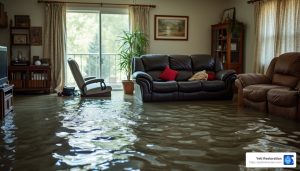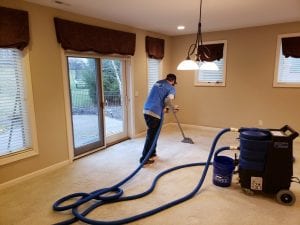Coping With Home Damage Stress
We started Yeti Restoration after our normal routines were interrupted by one of the disasters our clients go through in any given week. We had the same anxiety that any family would face in dealing with a disaster in their home. The events of that night of flooding, and the process of physical recovery, alongside the emotional distress are unable to be forgotten.
Our expectations that a restoration contractor would step in to help control the physical injury to our building (even if they couldn’t help with emotional distress like perhaps a clergy member could) were somewhat dashed when our salesperson became more of a salesman than a person in our moment of crisis.
Our little construction company picked up some of the burden and our daily activities began to get reshaped around serving family and friends with disasters in the same way as we would want to be focused on, to feel good about who’s in our home, knowing someone helpful cared enough to manage our situation with compassion and excellence at once.
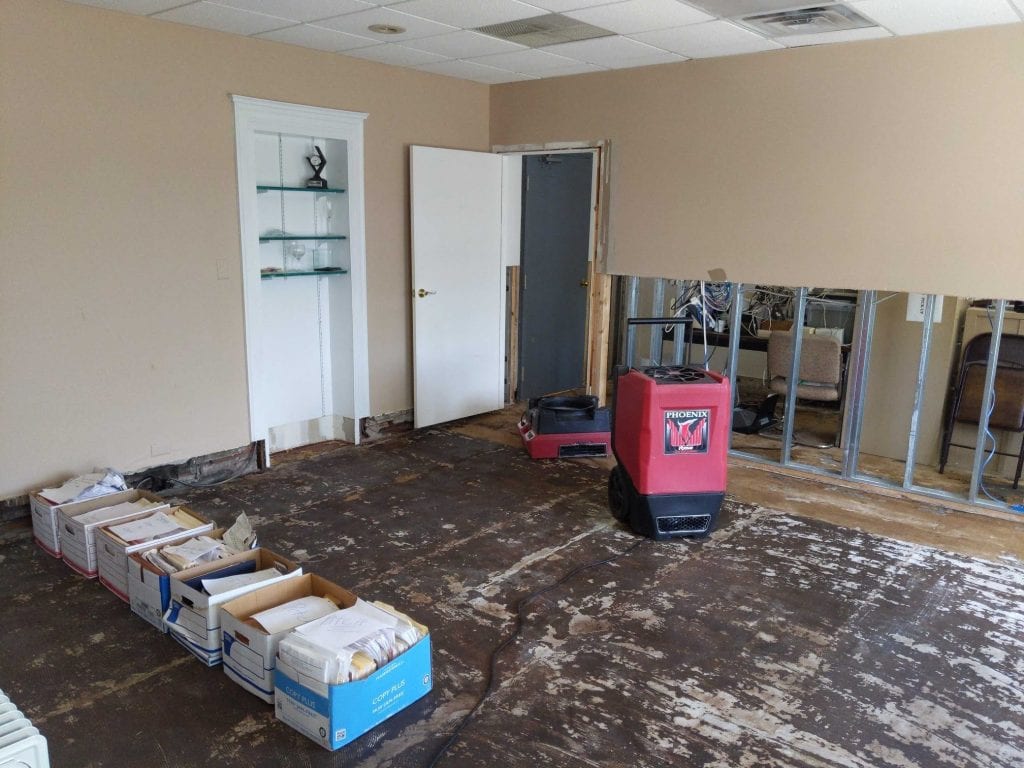
Common Emotional Reactions
Depending on what support you have around you, and if you have children in the home after a flooded basement or house affected by fire, your focus will be totally different. We commonly see that healthy relationships in the community change everything.
The sense of being seen appears to relieve stress and depression dramatically. Over and again, even in more expected major life decisions, having good people and loved ones physically nearby changes the nature of the loss, providing support and helping with recovery.
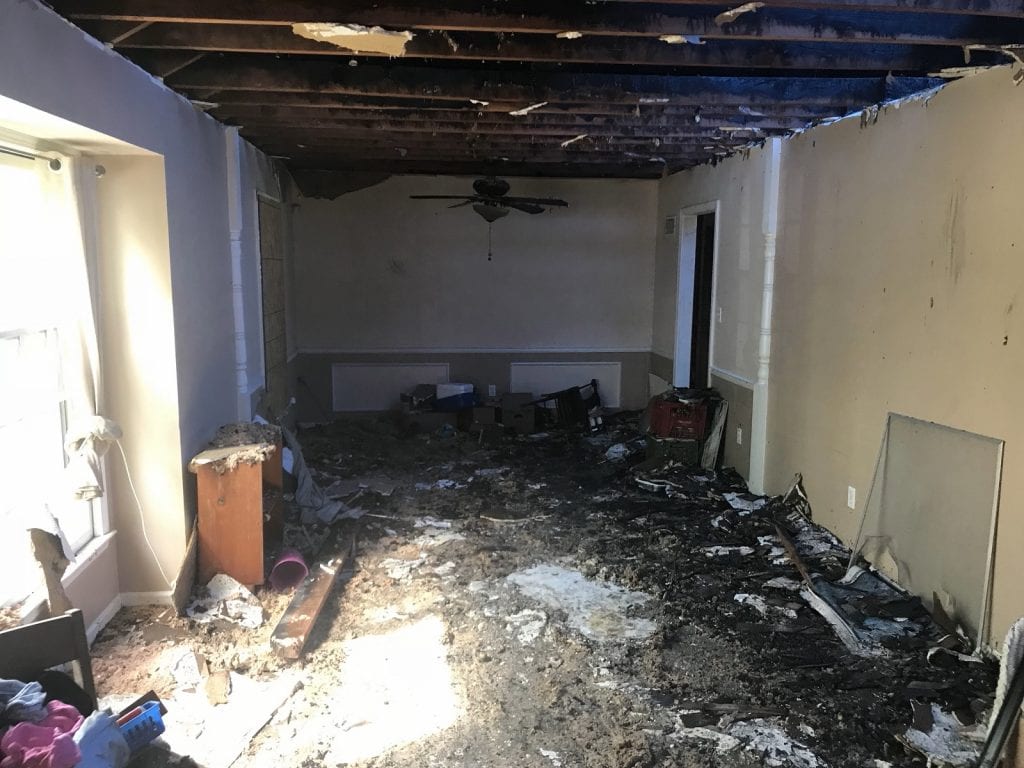
We see people typically manage stress and maintain composure, coping outwardly when we first arrive on the scene of a disaster. Emotions and feelings often surface as people realize the impact this disaster will have on their daily lives and daily responsibilities. As they take us into the most affected areas of the home, their place of rest and retreat becomes a place of anxiety and overwhelming feelings; sometimes anger.
The risk to your home, even if temporary, is real. The anxious thoughts of relocating, or having to accept that the walls you painted, and the carpet you installed, are damaged – perhaps beyond repair – often make people lose sleep, and it seems that this emotional distress damages their self-care routines.
The stress this puts on a family (moving out of their house, relocating their animals, needing to stay with family and friends) is a loss of control in their daily life. And it’s hard to maintain their daily focus, and responsibilities at their job, or find relief in a different space, even if it’s temporary.
Accept New [Temporary] Normal Routines
The point of this article is mostly to prepare people going through these disasters. Yes, there’s distress. But if I have any tips, they would start with accepting the disaster for what it is. Be glad you have friends and family and lean into the offers of kindness. We do our best to stay in a stance of service, but our emotions are different. I remember what coping was like when we went through this with our family and friends. Our process was a month or two long, but for some people, your home will be in recovery for a year by the time the insurance company agrees to pay appropriately, and the contractors are all lined up.
The events of the loss are a lot to have to cope with, but it’s important to talk with your job, and your family, to get enough sleep, and to figure out what healthy coping strategies you need to employ for your children.
Your relationships don’t change, but the places that your children play, or where you sleep will change for a moment. We see that some people choose to live in an RV on their driveway to keep their mental health in check. For some people, living so close makes them feel stressed. They want to keep their loved ones away from the house and find a new environment that’s clean and safe while they get the support they need, and try to keep the children in the same school (possibly without a bus service) or get caregivers in place to serve their needs for a season.
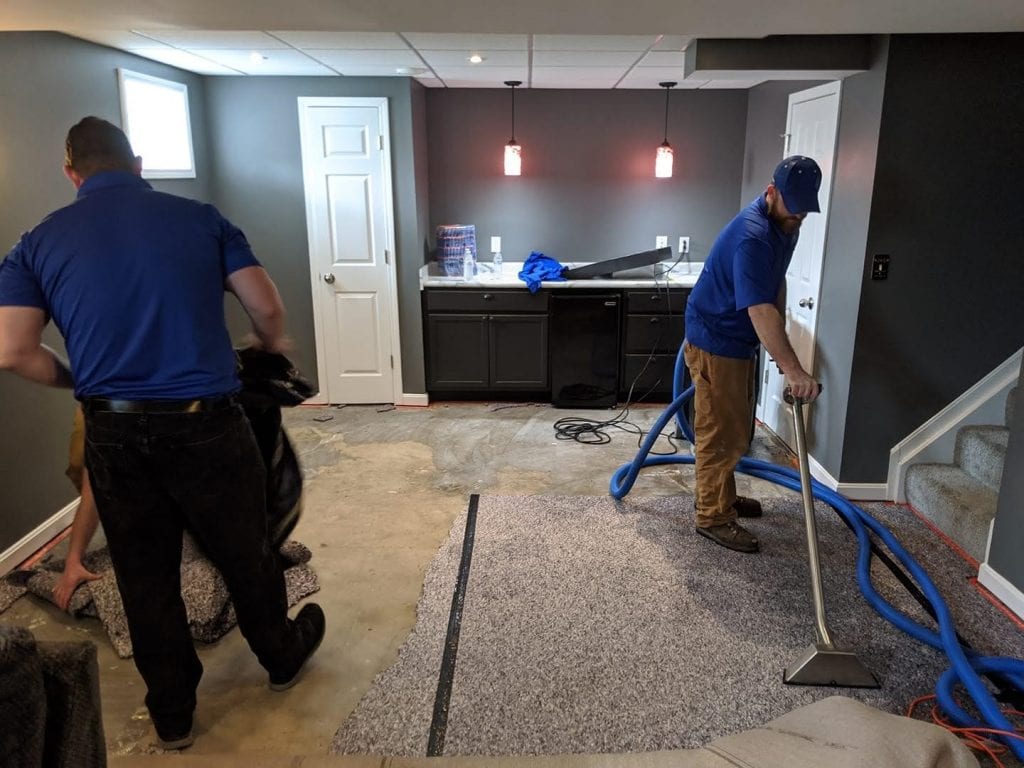
Some People Are Unable To Live In The Home Like Normal
If you have insurance, you likely have coverage for ALE; Additional Living Expenses, written into your policy. Talk with your agent and adjuster to make sure this is being proactively acted upon, and seek the wisdom of experience in your restoration contractor, who deals with this often.
Many adjusters won’t suggest or offer this straight away, but the nature of a large loss often dictates you’ll need to move out of the space. A good adjuster or restoration contractor will come up with ideas to help you move out quickly into a hotel, before transitioning to an AirBnB or furnished medium-term accommodation. This should be something that gives you the sense of being at home, and sustains your lifestyle as closely as possible, giving you the best shot at maintaining your self-care and serving your mental health.
When you find yourself in this position, your restoration contractor can be a good support if they know of companies that can help with relocation services, and provide tips on healthy places close by that you can move into quickly in a crisis.

